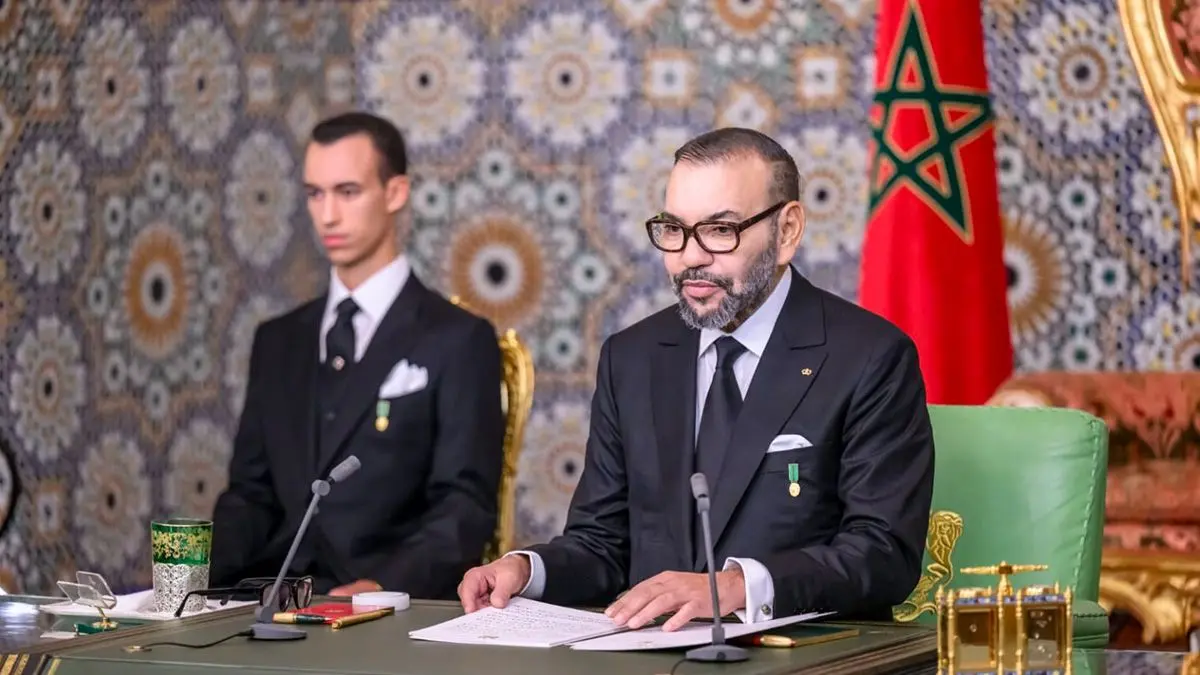Moroccan Mediation in Libya: A Success that Disturbs the “Other World"

- The Bouznika meeting: a major diplomatic success
- A reaction revealing deep-seated unease
- A strategy of destabilization laid bare
- Morocco as a stabilizing regional player
The Bouznika meeting, held on December 18 and 19, 2024, between the Libyan House of Representatives and High Council of State, continues the Kingdom's efforts initiated since the historic Skhirat agreement in 2015. This new stage in the inter-Libyan reconciliation process comes against a particularly tense regional backdrop, marked by Algeria's attempts - now referred to as the “other world” or “parallel world” (العالم الآخر) in the words used by King Mohammed VI during his Green March speech - to maintain its waning influence on the Maghreb scene.
The Bouznika meeting: a major diplomatic success
The Bouznika meeting led to significant advances in the Libyan reconciliation process. The two institutions agreed to continue their joint meetings, demonstrating their confidence in Moroccan mediation.
The parties agreed on several crucial points:
- The continuation of contacts between the presidencies of the two institutions and their members
- The importance of ensuring that competence and merit prevail in the management of the institutions
- The need to organize free and transparent elections based on the “6+6” laws
- Unification of sovereign institutions and institutional reform
- The development of a roadmap with a precise timetable
- Equitable distribution of resources and development based on active local governance
These concrete results testify to the effectiveness of the Moroccan approach, based on inclusive dialogue and respect for Libyan sovereignty, an approach that follows on from the 2015 Skhirat agreement.
A reaction revealing deep-seated unease
The Libyan Foreign Ministry's reaction, seen by many observers as inspired by Algiers, prompted an eloquent response from the Moroccan authorities. As a well-informed source in Rabat reports: “regarding anything that may come directly or indirectly from the eastern neighbor, the expression ‘parallel world’ (العالم الآخر), is sufficient in itself and to be put in factor to avoid tiresome repetition”. This measured diplomatic response reflects the maturity of the Moroccan approach to attempts at destabilization.
The Libyan Ministry's statement criticizing the lack of prior coordination was quickly contradicted by the participating Libyan institutions themselves. In particular, the Libyan High State Council described this interference as a “flagrant violation” of its prerogatives, forcefully reiterating its independence from the executive and its sovereign right to participate in dialogues without government tutelage.
The reaction of the Algerian press, notably through the article in TSA (Tout sur l'Algérie) hastily describing the Moroccan mediation as a “resounding failure”, reflects an ideologically-oriented reading of the situation, disconnected from the realities on the ground and the concrete progress achieved.
A strategy of destabilization laid bare
The organization of a meeting of intelligence services in Tripoli, marked by the notable absence of several strategic countries (Mali, Burkina Faso, Egypt, Mauritania), reveals an attempt to counter Morocco's growing influence. The most revealing incident was the hostile address by the head of the Algerian intelligence services who, in flagrant violation of diplomatic practice, launched a full-scale attack on Morocco from the Libyan capital, thus exposing the true nature of this meeting supposedly devoted to regional security.
This attitude is in line with Algiers' successive failures to build alternative regional alliances. The recent attempt to create a regional grouping excluding Morocco, to which Mauritania finally refused, is a perfect illustration. This abortive initiative bears witness to the failure of Algeria's strategy of isolating the Kingdom.
Morocco as a stabilizing regional player
Morocco's recent diplomatic successes extend far beyond Libya. The successful mediation in the release of four French nationals in Burkina Faso illustrates the Kingdom's ability to act as a credible facilitator on the international stage. This growing recognition of Morocco's stabilizing role is underpinned by tangible results, in contrast to Algeria's approach, which focuses mainly on rhetoric and obstruction.
Morocco's inclusive diplomatic approach, which respects the sovereignty of states, continues to demonstrate its relevance in the face of regional challenges. This constructive approach stands in stark contrast to Algiers' outdated vision, based on an antagonistic conception of international relations and the artificial perpetuation of regional tensions.
The success of Moroccan mediation in Libya confirms the Kingdom's status as a key player in regional stability. Algeria's attempts at destabilization only serve to underline its growing isolation and the failure of its strategy of systematic obstruction.
The multiplication of Moroccan diplomatic successes, both in Libya and in other theaters of operation, is outlining the contours of a new Maghreb, where constructive cooperation prevails over sterile antagonism. Algeria's progressive isolation thus appears to be the logical consequence of a diplomacy out of step with the region's aspirations for peace and stability.
In the final analysis, the success of Moroccan mediation in Libya demonstrates the soundness of the Moroccan vision, which places dialogue, mutual respect and the search for concrete solutions at the heart of its diplomatic action, in contrast to Algerian diplomacy, whose only compass seems to be systematic opposition to the Kingdom's successful initiatives.
Abdelhakim Yamani

